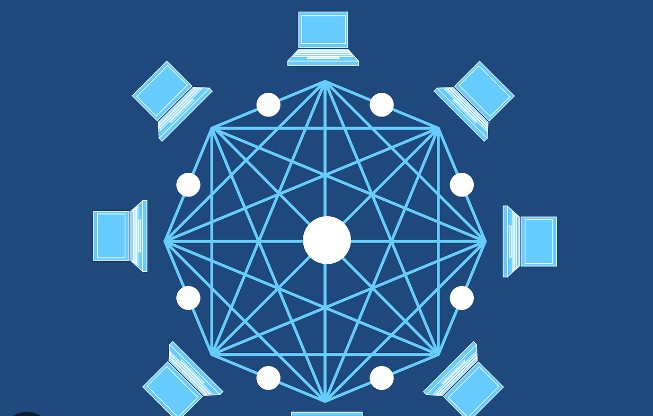6 Actionable Blockchain Development Tips That Work Like a Charm

Thanks to cryptocurrency, blockchain remains one of the most popular terms in the tech world. With its decentralized and tamper-proof nature, enthusiasts believe it will transform several large industries, such as real estate, healthcare, law, and accounting.
Nonetheless, any new technology, however revolutionary, will have its fair share of problems. Blockchain is no exception. There are significant issues to blockchain adoption that most developers find difficult to resolve.
The article below will discuss the barriers to blockchain implementation, how companies can overcome them, and some helpful tips for blockchain development. While there will surely be improvements with blockchain in the future, identifying its common problems now is key to learning how to address them
Blockchain Technology Challenges Developers Face
Blockchain systems have flaws in multiple areas, making their widespread use still a pipe dream at present. To start, get to know the challenges of blockchain technology.
1. Inefficiencies in design
Although blockchain technology offers numerous advantages, it still has several technological shortcomings. One of the main issues is code defects or loopholes. Bitcoin was the trailblazer in this aspect, but the system had design flaws. Other cryptocurrency companies like Ethereum attempted to resolve them, but the effort was insufficient.
Blockchain systems are vulnerable to coding loopholes. Centralized blockchains are typically more susceptible since hackers must target certain inherent flaws to gain access to private keys. However, this does not mean decentralized applications are free of this problem.
For instance, Ethereum allows programmers to develop decentralized applications that run on its platform. To date, developers model numerous apps on its platform but construct them with incorrect coding. Unauthorized users can still exploit these points of failure to hack into the system.
2. Restrictions in scalability
Scalability is another issue that needs addressing to improve blockchain inception. Blockchains function well for a limited number of users. However, what happens when there is mass integration? Ethereum and Bitcoin currently have the most network users, yet they struggle to keep up.
Blockchain entails several complicated algorithms to process one transaction. When the network’s user base grows, transactions’ processing slows significantly. They may take days to complete. As a result, blockchain is deemed unsuitable for large-scale apps.
Moreover, these restrictions make blockchain technology less profitable. Select blockchain networks demonstrated speedier output but slowed down when more people logged onto the system.
3. Excessive energy consumption
Another barrier to blockchain adoption is energy usage. Most blockchain technology is based on Bitcoin’s infrastructure and employs Proof of Work (PoW) as its main consensus algorithm.
Unfortunately, PoW networks use a significant amount of energy, and maintaining their operations requires substantial processing power. Furthermore, time-consuming processes like mining push computers to use a lot of electricity.
Individuals joining big mining pools that increase environmental concerns worsen the situation. If the number of miners continues to rise, they will need more power than the world can offer.
Developers must resolve this issue because many organizations avoid blockchain entirely because of this. One promising solution would be to use alternative consensus methods that consume much less energy than PoW.
4. Inadequate privacy
Blockchain and privacy do not get along very well because it operates autonomously and promotes data transparency. It is a public ledger where everyone can see each network member’s transactions.
However, no company can operate in the absence of privacy. While blockchain is decentralized and unregulated, businesses must adhere to strict privacy guidelines implemented by the developers for their specific networks. Customers trust companies with confidential information, so a private ledger that maintains data may cause privacy concerns.
It is best to limit access to the data by changing the registers to avoid privacy violations. In this case, making records available only to users with network permissions would be ideal.
In addition, making data visible and accessible to all users is necessary for cryptocurrencies such as Bitcoin. However, this presents specific problems for government agencies.
Governments must protect and limit access to their data for a variety of safety reasons. Hence, they can use a privatized or centralized blockchain, where members will have restricted access, keeping all confidential information private, as it should be.
5. Security issues
Another critical concern is security. We have all heard about how blockchain technology is known for its robust security features. However, as mentioned earlier, it’s not entirely immutable and hack-proof.
Compared to centralized blockchains, decentralized systems are more susceptible to 51% of attacks. Hackers can take over more than half of the system’s computational capacity and alter transaction processing to prevent other users from adding blocks.
The network protocol requires increased cyber security to address this. Most blockchain security vulnerabilities are already recognized, but only a few systems have adequate protocols to deal with them. As a result, no one knows if they are safe to use for an extended duration.
Tips for Current and Aspiring Blockchain Developers
The examples enumerated above are among the most common issues developers encounter with blockchain technology. If you are still up for blockchain development despite these challenges, brushing up on your knowledge of the Bitcoin language is essential. Accordingly, Bitcoin uses a stack-based programming script for processing transactions on a blockchain.
Below are some more specific tips that can help you develop blockchains:
1. Choose your first job carefully
Looking for work through public job portals can be tempting, especially if you are starting out or shifting careers. However, even as a rookie blockchain developer, you should be picky about your first employment. Before accepting the job, it would be best to wait until you find a developer role to help you establish a strong foundation in this new field of work. This will be your initial stepping stone, so make the right decision.
2. Gain practical experience
Experience is your finest teacher. If your knowledge of blockchain technology is still in its infancy, starting with learning the basics and slowly working your way up is crucial. Watch step-by-step tutorials, take an online course, or sign up for a brief coding boot camp. The most vital thing is to complete the tasks individually and learn blockchain development through consistent practice.
However, note that you need a solid academic background in mathematics, information technology, and computer science to become a blockchain developer.
3. Do considerable research
When it comes to learning new technical skills, research is vital. There are numerous resources available to help you learn more about blockchain. Nowadays, you can find various resource materials that can help you understand the fundamentals and processes of blockchain technology from multiple sources.
For one, you can join online discussion groups such as Reddit communities like r/bitcoin, r/ethereum, r/ethtrader, and r/icocrypto. People in these communities are eager to assist newbies with any queries or problems they may encounter on their learning journey.
4. Master the fundamentals of blockchain
As mentioned previously, you must have substantial computer science and mathematics knowledge to understand how blockchains work. You should also be familiar with cryptography, including hash functions and digital signatures. These are the foundational elements of cryptocurrencies.
Another core skill you need to learn is coding. It is essential to master programming languages for developing blockchain apps. Studying data structures is also crucial for strengthening your ability to understand problems extensively and provide solutions within the obstructions. Look into various data structures like linked lists, trees, and arrays to gather additional knowledge for your new interest.
5. Learn how to write smart contracts
Becoming a blockchain developer entails learning how to write smart contracts for blockchain applications. Smart contracts are the app’s logic. Various programming languages, such as Solidity, Python, and JavaScript, can develop these contracts. However, Solidity is the most popular because the Ethereum Virtual Machine supports it.
6. Look into tools and technologies
When developing a blockchain system, developers have numerous tools to pick from. Choosing the correct one for the job is critical to building a solid app with minimum latency. Look into innovations when it comes to blockchain technology and keep your eyes peeled for updates on current ones.
Before you begin development, you should explore alternatives and choose the most suitable programming language for your application.
The Bottom Line
Developers have come a long way from the first roll-out of blockchain technology. While it hasn’t been the easiest path, it’s only now that we’re seeing businesses trust in its potential and improvements in its adoption as a secure technology.
Technological innovations require a long time to develop and achieve a stable form suitable for widespread inception. With a long list of blockchain implementation hurdles, it’s evident that the technology needs optimization before businesses can fully enjoy its benefits. Mass adoption will no longer be a distant dream once developers resolve issues and drastically reduce security risks.
Furthermore, thanks to the steady growth of the blockchain industry, many training courses, and learning resources are available for aspiring developers. For instance, you can attend Bitcoin SV DevCons to keep up with the current trends, expand your knowledge of blockchain technology, and improve your core development skills. Sign up here to receive updates on future conferences.
Feel free to visit to know more about: No KYC online casinos


